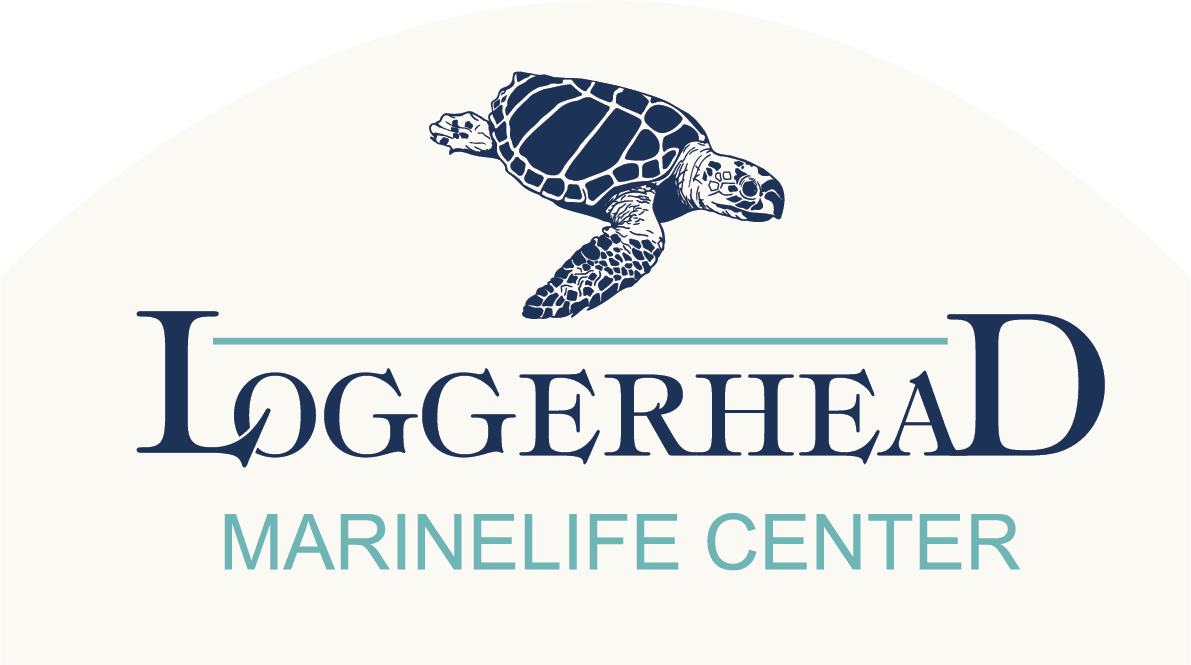Loggerhead Marinelife Center’s (LMC) very own research biologist, Kelly Martin, has been published by the Journal of Experimental Biology and awarded the Editors’ Choice for her study, “Underwater hearing in the loggerhead turtle (Caretta caretta): a comparison of behavioral and auditory evoked potential audiograms.” This was the first published study of a behavioral hearing test for sea turtles. Martin led the study for her master’s thesis at the USF College of Marine Science along with Mote Marine Laboratory and Aquarium. Other collaborators were from New College of Florida, the University of South Florida College of Marine Science, and the University of Florida College of Veterinary Medicine. Editors’ Choice articles are specially selected by the journal to be featured publicly for 28 days. This article is available on http://jeb.biologists.org until Sept. 5.
Scientists are just now beginning to understand the hearing capabilities of the threatened and endangered sea turtle, whose ocean habitat is filled with natural and man-made sounds. Prior to this study, the few hearing studies with sea turtles relied solely upon a test that measures auditory-evoked potentials (AEPs). This test uses sensors to measure the brain’s response to sounds. This same test is conducted on newborn human infants to check for hearing loss. To solidify AEP results, Mote scientists and collaborators trained a nearly 200 pound female loggerhead sea turtle named Montego to answer the question: Did you hear that? “A lot of people thought you could not train a sea turtle, at least not to the level needed for a behavioral hearing test, but with a lot of practice, Montego was able to pick up this complex task,” said Martin. In 2006, Martin and her colleagues began training Montego for behaviors designed to make health care run smoothly, including being weighed and handled, along with swimming to a special target for a food reward. In 2007, Montego learned more complex behaviors so that the turtle could participate in the year long hearing study which began in 2008.
Martin and collaborators trained Montego to wait at the target near a training platform, where a LED light would flash to signal the start of a research trial. Then, either a sound would emit from an underwater transducer or there would be silence. Montego was trained to touch a special response paddle with her beak when she heard the sound and to do nothing when there was silence. When she got the answer correct, she received a food reward. Montego was tested with sounds at different frequencies and varying volumes to find the limits of her hearing. Study scientists also tested Montego’s hearing by measuring auditory evoked potentials, which yielded results closely aligned with the behavioral test. “This suggests that AEP measurements show promise for testing the hearing range of other turtles that have not gone through a time consuming training process, and it confirms findings that sea turtles have low frequency hearing,” said Martin. This hearing range includes noises such as shipping traffic, coastal construction, and other human activities.
The ocean is not a quiet environment, so the ability to apply these findings to a wild population of sea turtles will be extremely helpful. Discovering how well sea turtles can decipher man-made noise is important for sea turtle protection. Many sea turtles end up with injuries from boat strikes so understanding their hearing abilities may be an important step toward conservation. This type of research is essential to Loggerhead Marinelife Center’s mission of promoting conservation of Florida’s coastal ecosystems with a special focus on threatened and endangered sea turtles. Loggerhead Marinelife Center is proud to have Kelly Martin as part of our team here, furthering sea turtle research locally, as well as globally.
